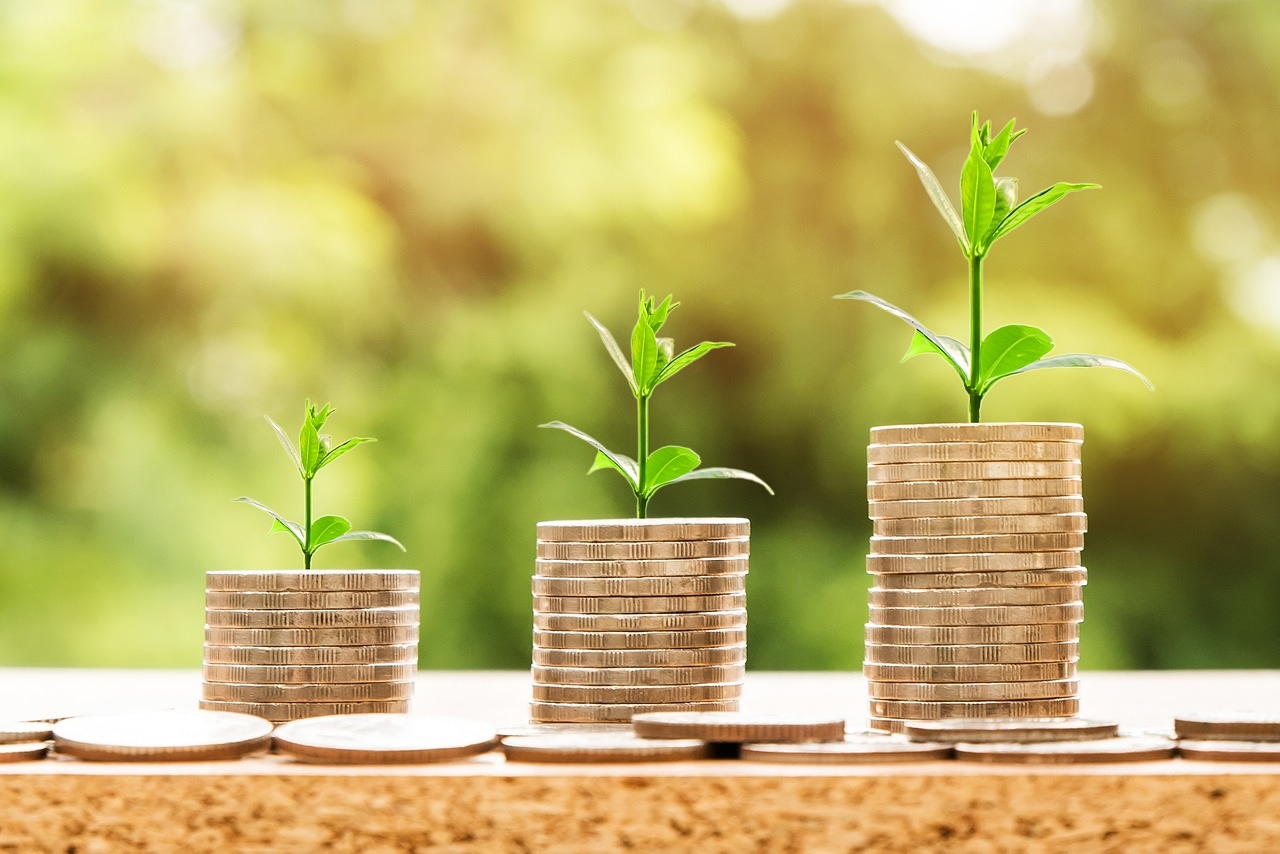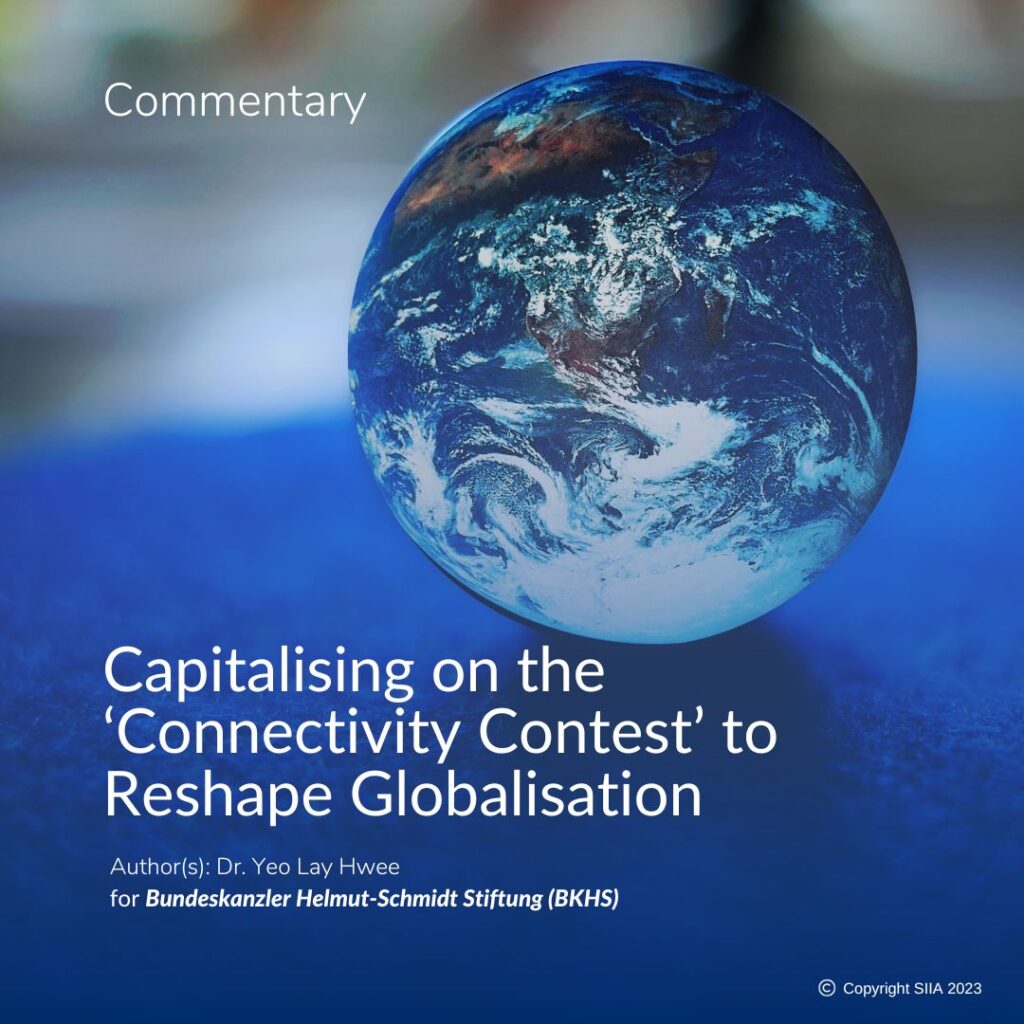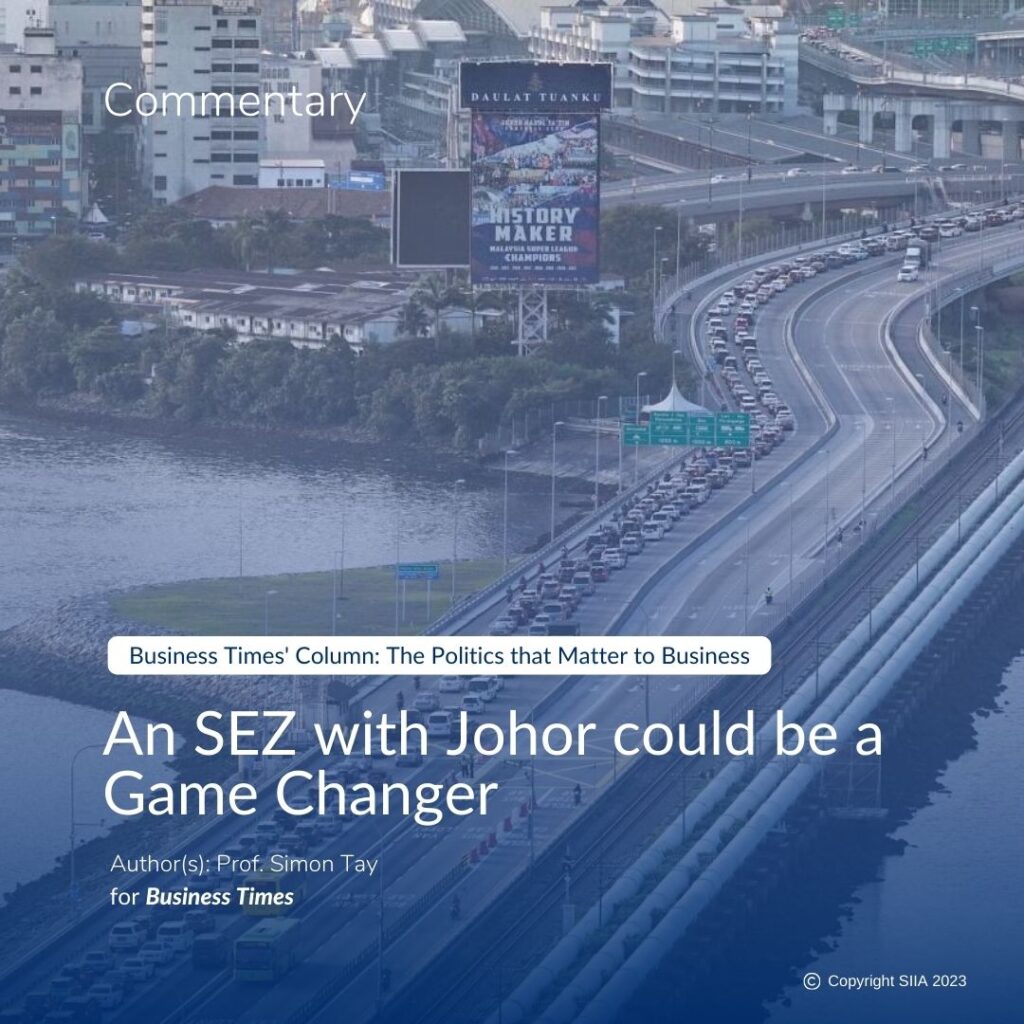By Simon Tay and Meixi Gan
For The Business Times
Many Singaporeans are looking to the upcoming 2021 Budget that the government and Deputy Prime Minister Heng Swee Keat will unveil on Feb 16. After the unprecedented S$100 billion support last year against the immediate impacts of the Covid-19 pandemic, focus is shifting on how to best prepare for the future. Support is expected to more specifically target some sectors. But what are the key targets?
At a recent public forum, DPM Heng stated that a post-Covid-19 world must see each country “undertake structural reforms, to build new competitive advantages to benefit from globalisation, and to ensure that social policies are sustainable”. Climate change was highlighted as an urgent area of focus.
SINGAPORE’S GREEN DNA
Singapore has a strong green DNA that began from the very first years under founding Prime Minister Lee Kuan Yew. In the decades since, the recognition of climate change has grown, capped at the 2019 National Day Rally when Prime Minister Lee Hsien Loong classified it as an “existential” crisis. This strong political commitment has since cascaded into government agencies, rules and policies, many of which pre-date the pandemic.
The renaming of the Ministry of Sustainability and the Environment is much more than semantics. Singapore is taking steps to decarbonise our domestic economy. The government can lead the way as a major owner of buildings, holder of investments, procurer of goods and services, and developer of major infrastructure that can serve as green reference projects. Government incentives have also supported development of sustainable finance products and fintech, which have been taken up by companies in a wide range of sectors.
The private sector must continue to invest and innovate. The upcoming Budget should reinforce this, with incentives for research and development, and by extending employment support. Akin to the current Jobs Support Scheme, new “green-collar” jobs can be created and filled by upskilling and reskilling employees. The 2021 Budget can be a major follow-up on the commitments the government has announced earlier, and move the country forward.
REGIONAL AND MARKET MOMENTUM
Ultimately, Singapore contributes just 0.11 per cent of global emissions. But the leverage and responsibility of major companies and of Singapore as a hub for business, trade and finance are increasingly recognised, creating an expectation for Singapore to be a positive influence on the region.
Partnerships with its neighbours can enable Singapore to make a much larger contribution to mitigating climate change. Much will depend on the priorities of our neighbours, but there are positive signals from ASEAN governments as well as markets.
Within our region, the increase in natural disasters has been a tangible warning that immediate, decisive climate action is needed. The predictions are dire: by one estimate from McKinsey, nearly US$5 trillion of gross domestic product in Asia will be at risk every year from climate change by 2050, with the poorest countries hardest hit.
Acknowledging these risks, governments and their citizens have called for a “green recovery” from the pandemic with an emphasis on sustainable, inclusive growth – within each society and between nations.
This reflects a broader market trend in favour of sustainability. Leading companies, as well as many smaller ones, now understand that staying on top of environmental, social and governance (ESG) issues will serve long-term business interests.
Data show that ESG funds steadily outperformed the broader market during 2020. This is despite early fears that preoccupations with the pandemic would sideline sustainability concerns.
A GREEN GENERATOR OF GROWTH
Singapore is currently a top investor across the region, including in Indonesia, Malaysia, Vietnam and Myanmar.
Many global companies utilise Singapore as a node and hub for the wider region. This can and should be leveraged to further the region’s green recovery.
Singapore can increase efforts to develop and test-bed sustainable innovations – from green energy to waste management to carbon capture – that can later be diffused throughout the region.
ASEAN countries would benefit from greater intra-regional trade supporting decarbonisation – Malaysia is the third-largest maker of solar cell modules globally, while Thailand is completing its construction of South-east Asia’s first lithium-ion electric vehicle battery factory.
Carbon trading is another potential connection to regional green growth.
Global demand for voluntary carbon credits is projected to increase tenfold in the next decade, as net-zero ambitions must be met with emissions reductions as well as credits to offset unavoidable emissions.
For Singapore, this would mean anchoring organisations across the value chain, from offset generation, verification and benchmarking, to price discovery and market creation.
Several ASEAN countries are also looking to develop their own national carbon pricing and trading systems.
Singapore’s reputation for good governance can add value to deepening these efforts, including developing ways to link or align the different emerging schemes.
This could be beneficial to all by increasing market liquidity and minimising carbon leakage within the region.
A regional effort would also put ASEAN on better global footing to deal with major economic partners, with the European Union already considering carbon border adjustment measures.
COLLECTIVELY JUMPSTARTING REGIONAL GREEN GROWTH
With the Biden administration returning the United States to the Paris Agreement, potentially more than 60 per cent of the world economy will soon be under self-imposed carbon limits and commitments.
Singapore can play a key role in securing a just and inclusive transition away from a high-carbon economy, both at home and partnering its ASEAN neighbours.
This will serve to mutually support ASEAN member states’ efforts to meet their Paris Agreement targets, and to strengthen the region’s collective voice in global climate negotiations.
Achieving climate goals while rebuilding after the pandemic’s economic fallout will not be easy.
But the momentum of major economies and markets is growing, and also greening. Opportunities in technological innovation and finance are also growing in tandem.
By budgeting to green our economy and encourage partnerships across the region, we can seize those opportunities and trigger positive change and cooperation across our region.
- Simon Tay is associate professor at the National University of Singapore Faculty of Law and chairman of the Singapore Institute of International Affairs (SIIA). Meixi Gan is deputy director, SIIA and leads its sustainability programme.
Source: This commentary was first published in The Business Times on 26 January 2021.




